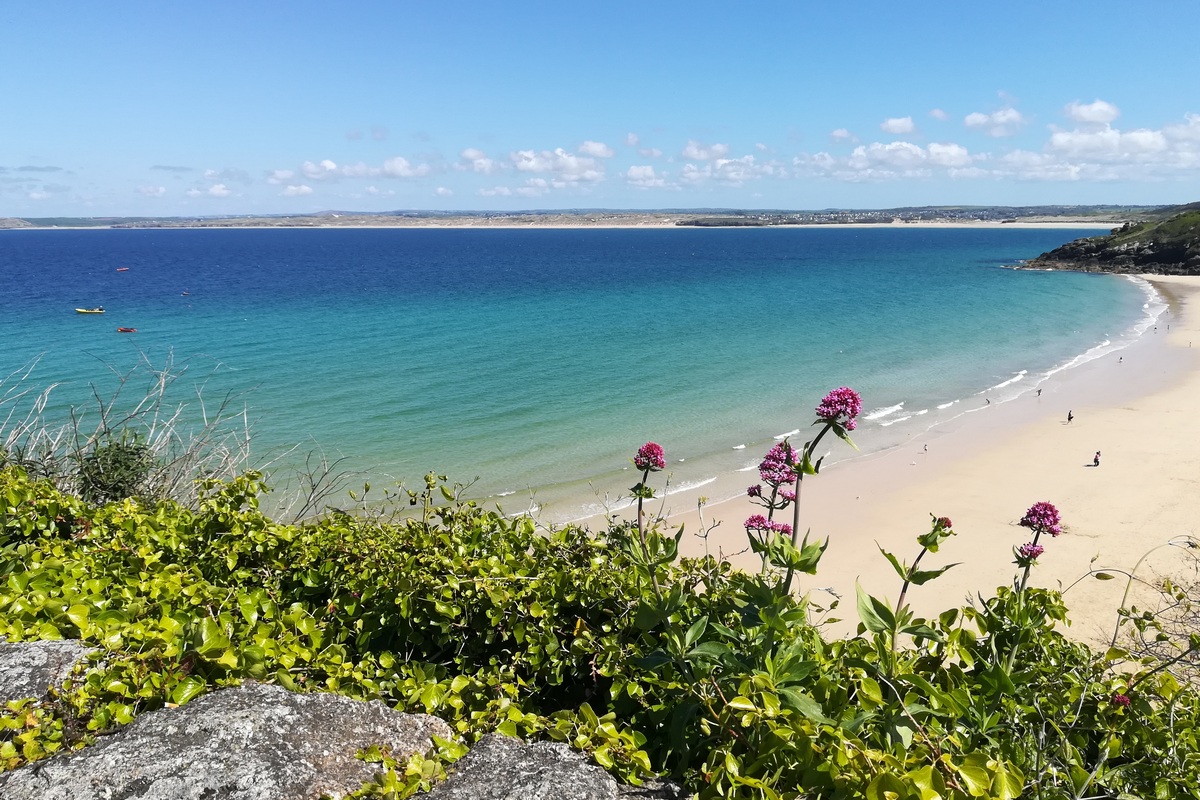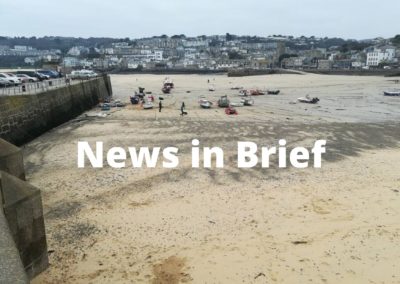Every world leader should take time to take off their shoes and walk on our beaches when they come to the G7.

That’s the opinion of Sir Tim Smit, founder of the Eden Project, interviewed on BB Radio 4’s PM programme.
He said: “You’ve got more wrecks than you can find anywhere along this coast, and you have the oldest man-made structures still in use anywhere in the world in the bronze age fields of Penwith. And it should remind you, as you look out across the stunning bay there at Carbis, of what a beautiful world we live in and the duty that we all have at the moment to, perhaps, lift our eyes to a distant horizon that we want to make a lot closer, about the aspirations for homo sap.”
When asked what the world leaders should do in Carbis Bay when not not gathered around the conference table, Sir Tim said: “They should breathe deeply the excellent ozone, they should get out and go and see something of the wonderful stuff that Cornwall has got to offer. We’ve got probably the best gardens in one place anywhere in the world. The beaches are just marvellous, and actually I love the idea of them walking along the beach because people seem to talk a lot more sense. They ought to be told to take their shoes off, I think.”
What sort of welcome would they get from the Cornish? he was asked. “The Cornish are famous for giving warm welcomes. They can be quite curmudgeonly in anticipation, but in reality they’re very friendly to incomers, unless they misbehave. And I think, actually, the sense of deep gratitude, the recognition of Cornwall, would clearly overwhelm any sense of mischievous lack of welcome.
“No, I think they’re going to have a great time here and they will be well looked after and I think they’ll go away never having forgotten they came here.”
More than Poldark and pasties
Mark Duddrigde, chair of the Cornwall and Isles of Scilly Local Enterprise Partnership, is hoping G7 delegates will see beyond the ‘Poldark and pasties’ image of Cornwall.
He points out that Cornwall has one of the fastest growing tech sectors in the country, buoyed by one of the best broadband networks in Europe, a higher quality of life, and fuelled by the creative industries.
“And we still trade globally today, with £661m of exports and £688m of imports. A high proportion of those exports go to G7 nations: £73m to the USA, £55m to France, £47m to Germany, and £25m to Italy,” he said in an LEP blog.
“It’s a peculiarly modern view that Cornwall is on the edge and peripheral; the legacy of post-industrial decline in the mid-20th century that doesn’t reflect our new vision and momentum. But now we’ve got the G7 to help set the record straight.
“So I make a plea. By all means embrace and celebrate Cornwall for its culture, its heritage, its outstanding beauty — all those things that make this place so very special. But let’s change perceptions and raise ambitions. We have a much bigger vision. We’re so much more than the Poldark and pasty stereotype.
“Not just because Cornwall could offer a model sustainable low-carbon economy for the world to emulate. But because perpetuating a myth masks the deep-seated inequality in our society that all G7 nations still need to address.
“So as we welcome the G7 summit in June, let’s seize a once in a generation opportunity to influence some of the world’s most powerful people to put climate change, the environment, and social justice at the heart of the global recovery. And to show them how proud Cornwall is to play our part in that.”


